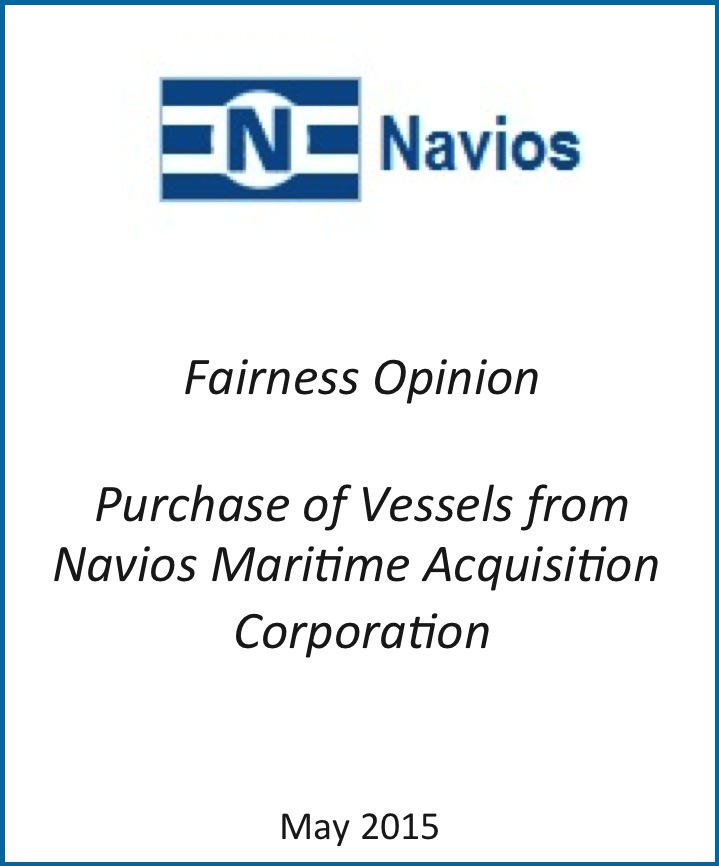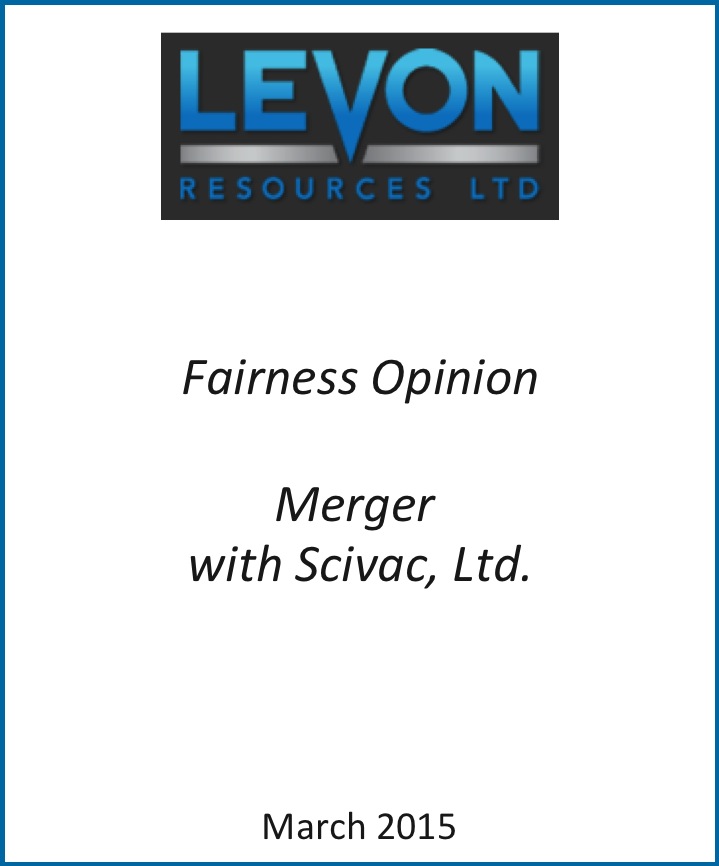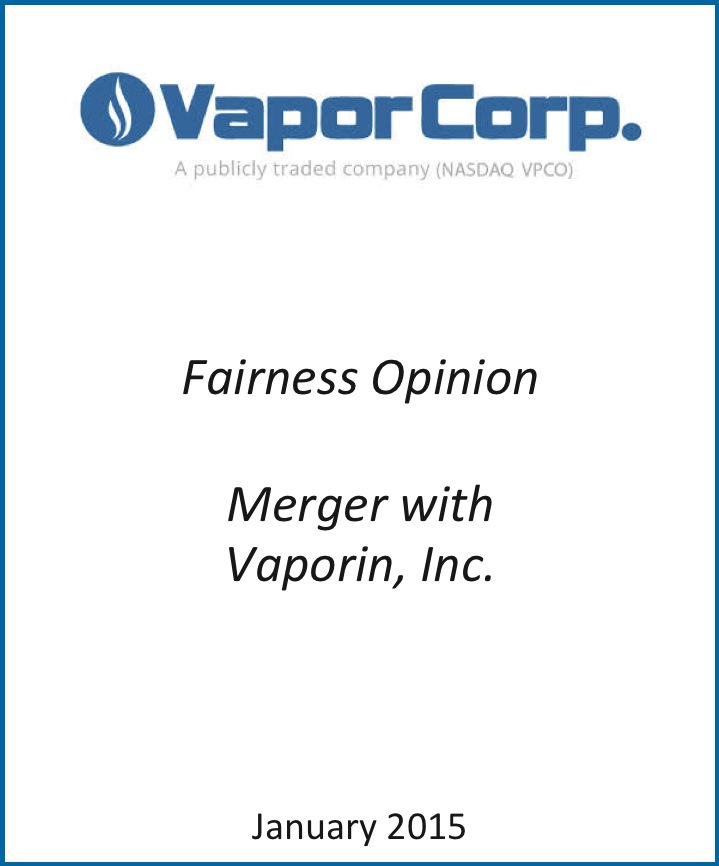By Joseph “Joey” Smith, February 12, 2015
In South Florida, 2014 was an active year for many outstanding middle-market companies. This positive activity can be seen in both the velocity of the transactions completed and the relatively high valuations achieved. The “perfect storm” that contributed to their successful closings includes: (1) strong, scalable business models; (2) management teams that innovate and execute; (3) a strong economy, with low interest rates in place; and (4) a plethora of value-added institutional investors with access to inexpensive capital. These factors contributed to higher valuations and more favorable deal terms for the middle-market companies with the foresight to position themselves for sale or growth capital. The most notable and largest of the transactions seem to have taken place in the fourth quarter. Although not a middle-market transaction, South Florida lost one of its favorite “sons,” with its home-grown Burger King combining with Tim Horton’s of Canada in an $11.4 billion tax inversion transaction in August. The merged company, Restaurant Brands International, with more than 18,000 restaurants worldwide, will be based in Canada. However, Burger King will still have a meaningful corporate presence in Miami. The most notable sale transaction and growth capital transaction for 2014 are highlighted below. Both companies exemplify superior leadership, vision, teamwork, and execution of their business models.
Sale: Simply Healthcare Holdings, Coral Gables, Fla. – In December, Mike Fernandez did it again. The self-made, serial entrepreneur and billionaire sold his Simply Healthcare Holdings (owned by his private equity firm MBF Healthcare Partners) for just under $1 billion to Anthem, Inc. (NYSE: ANTM), one of the largest insurance companies in the nation, based in Indianapolis, IN. Founded in 2010, Simply Healthcare offers Medicare and Medicaid plans to about 200,000 Floridians. Simply Healthcare’s revenues were expected to approach $1 billion in 2014, up from $458 million in 2013, and $182 million in 2012. The sale follows another 2014 MBF Healthcare exit, with the sale of the local, Miami-based Navarro Discount Pharmacy chain to CVS Health Corporation (NYSE: CVS).
Growth Capital: Star2Star Communications, Sarasota, Fla. – In December, Norm Worthington, the founder and owner of Star2Star, chose from more than 20 offers received to accept $30 million of growth capital, led by NewSpring Growth Capital of Radnor, PA. Star2Star has been self-sustaining since 2009, which is highly unusual for a technology centric company. Star2Star accomplished what many others have failed: to use the internet to unify communications for businesses, combining voice, video conferencing, and instant messaging in a cloud-based platform. The 2014 Inc. 5000 List of the fastest-growing private companies during the preceding three years ranked Star2Star No. 1971, with estimated revenues of $33 million and 200 employees in 2013, up from $10 million in revenues and 100 employees in 2010. It is estimated the company has 150,000 business users at 30,000 locations across the U.S. and Canada. Kudos to Norm and his team for a job well done, but also for creating a force to be reckoned with for years to come.
Highlights of South Florida’s Top Middle-Market Mergers & Acquisitions for 2014:
Ladenburg Thalmann (NYSE: LTS) Miami-based financial services company which continued to grow its independent advisor and insurance platform with its August acquisition of Highland Capital Brokerage, a Birmingham, Ala., insurance broker for $42 million. The Dr. Frost-controlled financial services juggernaut continues to successfully execute its growth plan, as evidenced by its positive stock market performance.
Citrix, (NASDAQ: CTXS) Fort Lauderdale, Fla.-based technology company has continued to make strategic tuck-in acquisitions, as evidenced by the September purchase of Virtual, based in Delray Beach, Fla. Citrix also acquired RightSignature, a Santa Barbara, Calif.-based electronic signature company in October for $37.5 million in cash. Citrix’s aggressive acquisitions, combined with its organic growth, continues to remind us that it is South Florida’s largest and most successful technology company. Founded 25 years ago in South Florida, Citrix has innovated its way to a $10 billion market capitalization.
MEDNAX (NYSE: MD) Sunrise, Fla.-based healthcare company which operates a network of medical practices with over 2,500 physicians in 34 states, has continued its acquisitive spree with the September purchase of MedData, a revenue cycle management, billing and coding company. In addition, Mednax acquired approximately a dozen physician group practices in 2014. Founded 35 years ago in South Florida, MEDNAX continues to grow and flex its muscles with a healthy $7 billion market capitalization.
Bankrate (NYSE: RATE) North Palm Beach, Fla.-based financial news firm acquired mobile finance company Wallaby Financial in December. Bankrate will combine Wallaby’s suite of products and proprietary technology with its existing credit card distribution platform. This transaction closed out an active year for Bankrate, which also acquired Caring, Inc., in May for $58 million in cash. Caring is an operator of online destinations for caregivers seeking information and support for aging parents, spouses, and other loved ones.
BBX Capital (NYSE: BBX) Fort Lauderdale, Fla.-based company and the former parent company of Bank Atlantic continued its sweet consolidation in the chocolate and confectionary industry with its January purchase of Williams & Bennet of Boynton Beach, Fla. This transaction follows the tasty acquisitions of Hoffman’s Chocolate of Lake Worth, Fla., in 2013 and Jer’s Chocolates of Solana Beach, CA. in July 2014.
CBIZ (NYSE: CBIZ) Cleveland, Ohio-based accounting and consulting firm continued to expand its South Florida footprint with the November purchase of Weekes & Callaway, an insurance agency in Delray Beach, Fla. CBIZ, the seventh-largest accounting firm in the country, had already added valuable inventory with the 2010 acquisition of the long-standing firm, Goldstein Lewin & Co. of Boca Raton, Fla.
MDLIVE Sunrise, Fla.-based telehealth provider of on-demand healthcare delivery services acquired Breakthrough Behavioral, a Silicon Valley, Calif., firm in November to expand its teletherapy network of behavioral health specialists. In January, MDLIVE announced it received $23.6 million of funding led by Heritage Healthcare Innovation Fund, Kayne Anderson Capital Advisors, and others.
CheckAlt Los Angeles-based leader in Check 21 payment and item processing solutions for financial institutions and merchants acquired ERAS, a Miami-based subsidiary of Diebold (NYSE: DBD) in June. ERAS, with more than 100 employees, delivers item and payment processing solutions for regional banks, community banks, and credit unions.
Majestic Properties Miami Beach, Fla.-based real estate brokerage firm was acquired in June by Douglas Elliman, the largest residential real estate brokerage firm in New York. Since inception, Majestic Properties has brokered more than 3,000 condo sales in Florida, valued at more than $3 billion.
Vantage Hospitality Group Coral Springs, Fla.-based hotel franchisor acquired America’s Best Franchising, Inc.’s six hotel brands and network of 225 hotels in July. Vantage, the eighth-largest hotel company worldwide, has grown rapidly to comprise more than 1,200 independently owned and operated hotels. Vantage is well positioned to provide strategic advantages and a commanding view.
The Fresh Diet Miami-based gourmet meal delivery service company was acquired in a $10 million-plus stock transaction in August by Innovative Food Holdings (OTC: IVFH) of Bonita Springs, Fla.
Verbatim Support Services Fort Lauderdale, Fla.-based court reporting service acquired its competitor, Apex Reporting Group, and four affiliated companies in October from Sunbelt Diversified Enterprises, a Miami-based private equity firm. Verbatim gained 75 additional court reporters to augment its current 41 employees.
Highlights of South Florida’s Top Venture Capital Financing Deals of 2014
South Florida companies attracted significant venture capital in 2014 from local investment and angel groups to venture capital and corporate investment from Silicon Valley giants. The largest financing for the region was from Magic Leap, a Dania Beach, Fla., augmented reality startup, which hauled in more than $500 million led by Google (NASDAQ: GOOG) in October. Additional participants included a who’s-who list of venture and strategic investors: Andreessen Horowitz; KKR & Co. (NYSE:KKR); Kleiner Perkins; Legend Pictures; Obvious Ventures; QUALCOMM Ventures; and Vulcan Capital (Paul Allen’s investment vehicle).
Modernizing Medicine Boca Raton, Fla.-based provider of electronic medical record systems for physician groups received $20 million in November led by existing investors, Summit Partners and Pentland Group. The company, co-founded and led by serial entrepreneur Daniel Crane, is wired to add 100 jobs, and has raised $55 million in capital since inception in 2010.
Pure Life Renal Hollywood, Fla.-based provider of kidney dialysis services announced that it has received commitments to raise $21 million in venture capital funding, led by Montreux Equity Partners and Noro-Moseley Partners. The company subsequently closed on $10.5 million in April.
Aeropost International Miami, Fla.-based mail and package forwarding company raised $5 million, led by North Bridge Venture Partners of Waltham, Mass. Aeropost offers AeroProtect, a service providing protection in case of loss, damage, wrong items, factory defects, or items under warranty by the supplier.
AdMobilize Miami Beach, Fla.-based big data company providing real-time metrics and intelligence for outdoor and indoor advertising raised $2.2 million in May led by Azoic Ventures and Rokk3r Fuel.
Kairos Miami, Fla.-based technology company received $1.2 million in February. The facial recognition technology provider’s financing was led by New World Angels of Boca Raton, Fla., along with Innovision Ventures, True Ventures, venVelo, among others.
Avisena Miami, Fla.-based revenue-cycle management and medical billing company landed an additional $1 million from an existing investor, WFD Ventures, a venture capita














